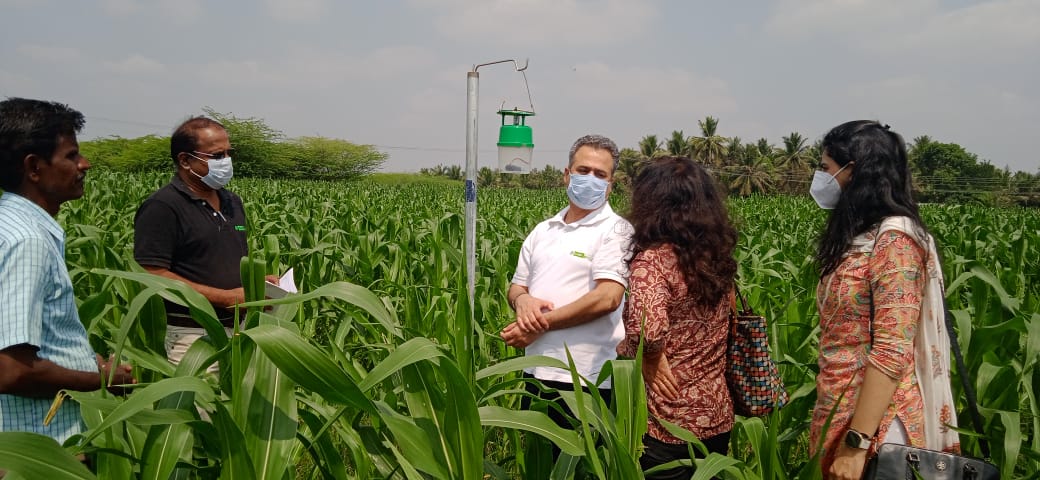Fall armyworm, Spodoptera frugiperda, has the potential to cause significant damage to crops worldwide. Recognising its impact, initial funding was awarded by the UK Government through the Foreign, Commonwealth & Development Office (FCDO)’s, Science and Innovation Network in India, to trial a new network-based monitoring solution.
This work produced a novel pest sensor, effective in transmitting data from the field to a farmer’s mobile phone. Now, thanks to a second round of funding from the FCDO, further work will take place to transform the hardware design and evaluate efficacy, to establish robust datasets.
A cross-sector consortium is conducting the project – Crop Health & Protection (CHAP), Knowmatics, Ystumtec and CABI.
International Business Development Manager for UK Agri-Tech Centre CHAP, Dr Jenna Ross OBE, said: “This device has the ability to save farmers time, improve yields, and provide valuable pest intelligence. We’re delighted to be able to continue this vital research, to establish datasets that correlate sensor signals and pheromone trap morphology with known pest species presence.”
Founder of Knowmatics, Derek Scuffell, said: “The project will use low cost sensors and farmer-centered user research to build a more accessible user experience with a progressive web app, usable by all farmers at risk from invasive alien species such as fall armyworm.
Fall armyworm was first reported in the cornfields of sub-Saharan Africa in 2016, later spreading to India in 2018. In addition to maize, the pest attacks other important crops such as rice, sugarcane, beet, potato, cotton and grassland.
Thanks to farming practices such as crop monoculture and overuse of pesticides, it has become an increasingly destructive pest.
Dr Vinod Pandit, Programme Leader for CABI South Asia, said: “Regular monitoring of agricultural crop pests is a crucial strategy for boosting eco-friendly IPM. Helping farmers to monitor their fields remotely gives them more accurate and timely information about specific pests like fall armyworm.
“With this knowledge, they can then make improved pest management decisions. This project will help us to develop an approach to keep important stakeholders, such as policymakers, informed about new pest invasions.
“Subject to the trial’s success and cost effectiveness, sensor-based traps can help to make remote pest monitoring a reality. The traps will be real game-changer in pest management.”
Mark Neal, Director and Electronic Engineer of Ystumtec said: “This work aims to take the technology to the next level, but also to establish the capacity for the work to be supported and continued in India.
“Providing technical solutions is important, but enabling networks of know-how and mutual support so that solutions that are appropriate for the local environment can be developed is also vital to the long term adoption of the technology. We look forward to further developing the project in collaboration with our Indian partners.”
For more information about the pest, visit the fall armyworm research collaboration portal.
To find out more about this project, contact CHAP at enquiries@chap-solutions.co.uk or visit www.chap-solutions.co.uk












